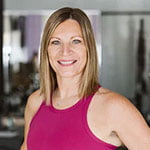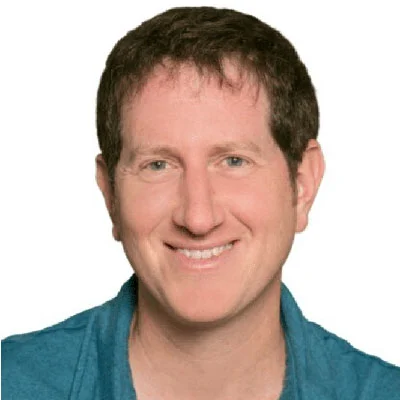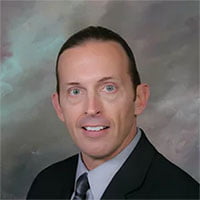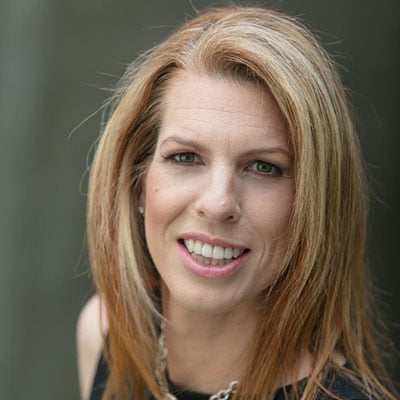Kevin Stafford 0:00
Hello, good morning. Good afternoon. Good evening. Good day to all of you out there. This is another episode of the coffee with coaches podcast. I’m your host Kevin and today I have with me the very charming Brooke Barrett Smith. As you can tell, she is fantastic to chat with great energy. Let me tell you a little bit about her before she tells you all about her. Brooke is a former Sony BMG recording artist turned peak performance coach. She’s been coaching both privately and in the industry for over 13 years. People see crapped her services when they’re trying to find the inspiration, or and or the self belief it takes to transform during a life or career transition. Or if they need to overcome an obstacle to achieve a new dream, bro, let’s just get into it. Thank you so much for being here. I’m already stoked.
Brooke Barrettsmith 0:45
Thank you so much, Kevin. I love the name of the podcast, you know, the music background. I’m like, Man, that’s so marketable coffee with coaches. So yeah, I’m really happy to be here, the transition into coaching for music was actually pretty, you know, natural. When you go into music, there’s usually that byproduct of people wanting to hear from you and talk to you get advice from you. It’s just It comes with kind of that platform. So it was actually a pretty natural transition out of, you know, touring and recording. And then I started getting exhausted, as I started approaching 30 I’m 40 now, but when I hit 30, I was like, huh, this is exhausting. And I’m not gonna get to Taylor Swift level and make a ton of money. So like, let’s, let’s pivot a little bit. And so I started coaching, vocal coaching, living in Nashville at the time. So that was the thing. So this was 2009, around around 2009. And so before I before, I feel like coaching an industry was even really a huge thing yet. But it was big in Nashville for like vocal coaching, performance coaching, it’s a really big thing there. And so, yeah, I just I dove into that I was like, let me see if I’m good at that aspect of it, the applied coaching, the singing lessons, the stage lessons, just took off. People liked it. And so the transition from that into where I am now was people started coming to me for the humanistic elements of my coaching, you know, the mental game, the toughness, the grit, the resilience, the, the redefining who they are, they, they started coming to me for more of those aspects of the coaching rather than the applied stuff. So that’s where I went back to school and, you know, created created a business that catered more to, you know, that corporate application.
Kevin Stafford 2:37
That’s awesome. I feel like at first blush, like, obviously, like someone hears recording artists, performance coach, it’s like, okay, they want to know, like, those two things don’t necessarily go together immediately in their brain. But you think about it for more than a second, you’re like, Oh, of course, there’s an element of performance. And there’s a tremendous amount of empathy required to perform, you have to understand your audience understand yourself, it’s a lot of the same emotional skill set, I feel like, for you,
Brooke Barrettsmith 3:04
so similar, you know, the, the need to show up authentically, with music as a musician as, especially as a solo artist myself was very much a part of what I did as a career for a decade. And so that translates into business, you know, we want to follow leaders who are authentic, who we feel as though have our, our best, our best in mind. And their the their their charisma is easy to follow, because you believe in them that they believe in you. Yeah.
Kevin Stafford 3:37
Yeah. And it’s that charisma that, again, comes from that genuine, authentic place. There are, there are certainly many leaders, many effective leaders who understand how to manufacture charisma without any real connection to who they’re leading, or at least think they’re leading. But that I love that your background comes from the artistic performance and creative performance, because you can’t go up there and really fake it, or at least not for very long, you will get exhausted far before you hit 30 Being that fake that publicly for that long, you have to be genuine in order to really access the power and energy you need to do the thing you want to do. And I just I love that you found it early and have found dynamically different ways to apply it all throughout your life in different ways.
Brooke Barrettsmith 4:19
Oh, thanks so much. Yeah, I mean, it’s, it’s cool because the authenticity piece is, you know, it’s ever present nowadays, especially, you know, kind of the breaking down of the barriers in our society. It’s all been so important. All the stuff that’s been happening in our world and in our, in the workplace, especially with culture in the workplace. So authenticity being to me, one of the key aspects of what a truly effective leader needs to look like it doesn’t mean that it insinuates weakness, but showing up authentically sets the example and that’s where peak performance really lies when someone feels as though they’re really being seen. and heard, man, that’s where the magic happens, at least in my experience, and at least in my work.
Kevin Stafford 5:07
Honestly, for having talked to this point like over 100 coaches, it’s the same for every single one, regardless of who they’re coaching or how they’re coaching them. It’s just, it’s something intrinsic to the very, very activate the relationship that you create is that magic is it’s there. It is.
Brooke Barrettsmith 5:25
The burnout clump, that’s where the burnout enters, you know, when we’re trying to be something that we’re not, that’s where, and that’s that’s kind of we reached a pivotal point in the workplace in the last couple of years and brought on probably by the pandemic highlighted, you know, that need to show up authentically and be our true selves in order to really contribute in meaningful ways. And you can still show up as yourself and contribute completely and fully. But we need leaders speaking that leading like that, living that and not being so afraid to to be that, yeah,
Kevin Stafford 6:04
showing us that it’s not either or, it’s, it’s both and you don’t have to have this division and compartmentalization, you can be your authentic self, and be a tremendously successful and effective professional. It’s not one or the other.
Brooke Barrettsmith 6:17
It’s not, it’s not one or the other. I saw a post on LinkedIn, actually, earlier today, we’re where people were highlighting that, you know, this is this is me being myself and yet still fully professional. I love I love that movement.
Kevin Stafford 6:30
Me too. Let’s, let’s talk about the present a little bit. And I like to phrase this question in a particular way, kind of like a who, what, when, where, why, almost like, journalistically, like, Who do you coach and how do you coach them? Like, do you have specific people or people at specific areas of their life that you coach, typically? And then do you typically coach one to one do you do small group or like mastermind style? Do you do like kind of executive coaching? Do you do keynote speaking, obviously, performances, you know, being on stage is certainly nothing. All of the above? So yeah, talk a little bit about the who and the how,
Brooke Barrettsmith 7:03
yeah, I’ve trained a lot in the keynote stuff. You know, the executive presence, keynote speaking, high stakes presentations, having the robust performance background, I was in a lot of those scenarios myself serving as a spokesperson serving on stage on behalf of a big record label pretty much. So yeah, that’s how it started out. With the one on one coaching, I do have an amazing organizational job to that I have nine to five over at Salina, biotech, I want to say hi to them, I know some of them will tune in because they’re so supportive. But yeah, that’s, that’s, you know, I took the one on the one to one, and I specialized in communication, public speaking, executive presence, effective communication, I should say, and, you know, authenticity and Transformative Leadership, that’s what I studied in my master’s program. The positive coaching aspect to being a transformative leader, great leaders are great coaches. And so really looking for that and enhancing that in, in people. And so, when I came on board at solino, I was doing only one in my private practice, I was only doing the one on one, you know, coaching for many years. And so it’s still is that within the Ord, but also there’s other applications, there’s workshops, there’s trainings, there’s, there’s group, there’s group settings. Yeah, so I’ve really grown a lot in the last few years moving into an organization. And yeah, finding new ways of transforming the one to one into other, you know, styles and platforms. Yeah,
Kevin Stafford 8:44
yeah, I find a lot, a number of coaches, they, at least at some point in their journey have bumped into that. I don’t want to say it’s difficult, it’s more of a challenge, depending on the circumstance where it’s like, so much of that magic, you talk about, like, you get a taste for it in the one on one and you’re present right there in the room, and you see, like, a light down on somebody’s face when they when they get it and you’re like, that’s just and you’re just you’re there for it, and you help that happen. And they just want that in everything else they do in their life. It really is, it really is. But it can be hard to say magic in like, you know, you’re in a group with like eight people. And it’s like, well, what if one person’s having like a really, you know, cloudy day in their, in their heart or like, you have all these things you worry about that. But there are so many different ways to get that magic, that spot light to dawn and people’s faces and all manner of kinds of coaching and I love that you were getting to experience all that.
Brooke Barrettsmith 9:31
Yeah, it’s great. You know, I’m happy to help develop it from the ground up, you know, we I came on in seed round and so we’re now at Series A. So it’s been very exciting to do it in the startup setting too and be given the the opportunity to develop that from the ground up. But yeah, the magic of the one on one is still where the there’s most the most impact. And so how do how does that translate into like a group session or into like a You know, a conflict resolution or something like that. And, yeah, that’s where you pull all of your resources and you emulate what happens in the one on one, in most settings, create the trust. So the foundation always being the trust upfront that needs to be created. The willingness, you know, the consent, and that’s, that’s the key piece in one on ones that is the same in those other settings that really helps it carry the same effectiveness and weight.
Kevin Stafford 10:31
It really does come down to that trust factor, doesn’t it? I mean, it goes by depending on when you encounter it, it goes by many different names, where there’s just buy in on one side, or both sides, there’s availability, authenticity, you know, empathy, it’s like, it all really comes back to do I trust you? Can we trust each other? So do you think of almost trust, at least I have as almost like a sort of like a switch. But it’s really, it’s much more than that. It’s like, it’s the road, you know, it’s the it’s the bridge that you actually walk on to connect each other, and then have all the other stuff pass through it, or pass over. It’s really, yeah, so much
Brooke Barrettsmith 11:03
about that bridge. And you know, that it’s that old, you know, example that since I was a kid, you know, I’ve seen people demonstrate it through, like, you know, sit on the chair. So it’s one thing to like, have faith that the chair is the chair and the chair is there to do its job, but like sitting down in the chair, and so, you know, a lot of the one on one work happens up front, so that they can sit in the chair when you bring them into these other scenarios. And so I really do emphasize doing that one, one to one work with every new hire and every new client, obviously, before we get into those kinds of scenarios, so they do understand that bridge that’s between the two of us in that trust and that they can sit in the chair and know that you know they’re gonna be cared for and seen and heard. And yeah, that’s it’s trust by and yeah, I love that one. So stay on cold but yeah, that’s that’s trust is is my, my jam. Yeah.
Kevin Stafford 12:03
Good to guest trust is my jam. I think that might be the title of the episode. Actually, I love thinking of it as a bridge. It’s something I’ve been thinking about in terms of like a metaphor for a while for a lot of different ways people connect, and thinking about a bridge is one thing that’s took me a while to realize and kind of accept about bridges is that the really strong ones, the ones that carry a lot of weight and do a lot of work. They’re designed, they’re not to be that fixed, they sway they have this capacity for movement and flexibility, that if you’re on the bridge, when that happens, and you don’t know that that’s part of its design, that can be terrifying. Yeah.
Brooke Barrettsmith 12:42
So true. So I hate bridges to run away. And still Yeah, for me to be on a bridge and to trust that trust the swing, but it’s it’s it’s in knowing like the architect and like the, you know, the the peep the usage and like the reliability and, you know, and then how many times you’ve gone over that bridge, and it’s never let you down? And, you know, you know, it’s it’s Yeah, I love that. Bridge.
Kevin Stafford 13:12
Hours, yeah. All right, I’ve clearly I could just talk your ear off and have my ear tucked off by you all day. But I go, this is designed to be a little short podcast. So I want to honor that. Do you have anything that you want to share anything that you’re like, excited about coming up soon, I know, it’s been a lot of change over the last couple of years, and you’ve moved into so many different kinds of dynamic styles of coaching, anything coming up, that you’re stoked about anything you want to say or share before we go.
Brooke Barrettsmith 13:39
I mean, you know, I just really want to encourage people to keep leaning into the authenticity movement, I think that’s showing up as our full true selves, really, it’s it’s not about coaching. At the end of the day, I want to encourage everyone as people to show up, someone needs to hear that today. You know, it’s okay to show up as yourself. And if you’re not in a scenario where you can’t do that, find a good coach like Kevin or like me, who can help you bridge that gap between your true self and your true effectiveness, your purpose, because I do believe so strongly as a coach, it’s it’s my deep, deep, deep belief that everybody has a unique purpose to fulfill in this life. And it’s in there within you and everybody feels that I know that. And so, if you’re struggling with that today, you know, there’s great coaches, not just me, not just not just Kevin, but like an NEA but any great coach who specializes in showing up in transformative authentic ways. would be so happy to help you bridge that gap and sit down in that chair of authenticity you like I’m bringing it all around.
Kevin Stafford 14:51
I love it. I love it. I love it. Good callback.
Brooke Barrettsmith 14:55
It’s the media training from my former years
Kevin Stafford 15:00
Really good, less than that you could have the training and you know, the borderline scripts that you almost read, like you know what to say. And that can be fully authentic and fully present. It’s like it’s both.
Brooke Barrettsmith 15:12
It’s script to me because I believe it’s so much and I live it. Yep. Yeah. I live it. I believe it. I show up like that. And and, yeah, it’s it’s conviction. Really? Yeah.
Kevin Stafford 15:27
Man, Brooke, thank you so much for this conversation. Even if we hadn’t been recording, I would be incredibly pleased. And what’s the word chuffed, I’d be very, very chuffed to borrow. Today, I gotta tell you today, this has been great.
Brooke Barrettsmith 15:41
Lovely. Thank you. Thank you so much for having me. This has been a delightful conversation.
Kevin Stafford 15:46
And thank you to the audience for listening. I hope you enjoyed this at like 1/10 As much as I did, because then you had a great time. And yeah, reach out find Brooke learn more. And yeah, if Brookes not the coach that you need. The coach you need is out there and they’re very close. Reach out, reach out to Brooke she probably knows a dozen coaches.
Brooke Barrettsmith 16:06
Connect. Yeah, absolutely would love to.
Kevin Stafford 16:09
So we will talk to you one way or another. I will talk to you again very soon.
Brooke Barrettsmith 16:13
Sounds good. Thanks, Kevin.










